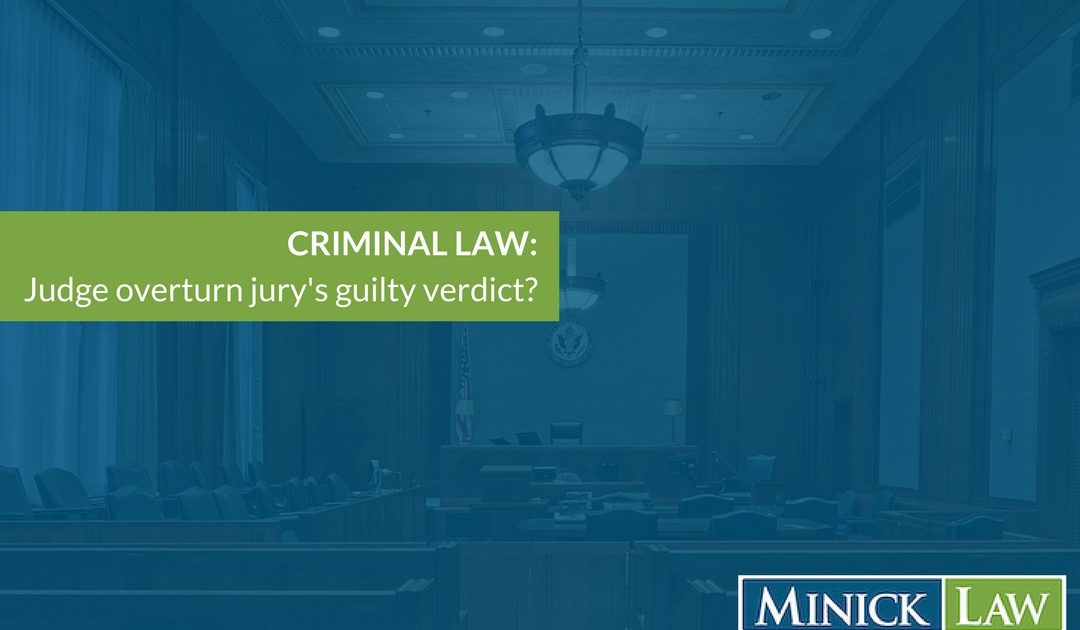Have you ever wondered, can a judge overrule a jury verdict? If you have, we’re here to answer the question for you!
In a criminal jury trial, a jury of your peers listens to the case and renders a verdict of either guilty or not guilty, or in some cases, an undecided verdict, which causes a mistrial. This is done in order to give the defendant a fair trial that is free from bias or harm. However, it does lead to the question of whether or not a judge can overturn a jury’s guilty verdict and what the process would look like.
Overturning Verdicts
In certain situations, a judge can overrule or change the guilty verdict that the jury has decided on. Typically, this is called one of two things:
- a judgment of acquittal or;
- a judgment notwithstanding the verdict.
In most cases where the jury has returned a guilty verdict, the defense will immediately make a motion to the judge to give either of these judgments (see our blog on How To Talk To A Judge). In almost every case, this motion is denied by the judge. However, the defense can appeal the verdict to a higher court.
Insufficient Evidence
Although it is unusual for a judge to overturn a guilty verdict, given certain circumstances, a judge does have the authority to do so when certain things have occurred. Generally, most instances of a judge overriding the jury’s verdict of guilty are based on insufficient evidence being presented at trial by the prosecution.
As a result of this insufficient evidence, the judge will see that no reasonable jury could have come to and reached a guilty verdict beyond a reasonable doubt. Typically, this occurs where the defendant is being charged with multiple crimes that each have their own unique elements that must be fulfilled for a guilty verdict.
A situation like this might arise from the prosecution forgetting to address each element individually and the jury may have just made generalizations in deciding on a guilty verdict.
Judge’s Decision
Although the judge has the power to overturn a guilty verdict by the jury, this power is not completely discretionary on the part of the judge. This prevents a judge from overturning a verdict simply based off of feelings or emotions. Fair trial is meant to be given and the judges must do their very best to take all things into consideration and come to a conclusion based on evidence, not feelings.
In order to overturn the verdict, the judge must look at all of the evidence presented in the light most favorable to the prosecution. If this evidence fails to clearly establishes guilt, the judge must and will grant the judgment to overturn the verdict.
Takeaway
Although a judgment of acquittal or a judgment notwithstanding the verdict are available to defendants, they are almost never granted by the judge. This is due to the fact that it is very rare for the prosecution to obtain a guilty verdict with insufficient evidence and the fact that a judge does not want to interfere with the jury’s decision and/or process without a legitimate reason.
Additionally, this process does not work vice-versa in any way, shape, or form. A judge may not overturn a jury’s verdict of not guilty. This is due to the fact that reversing a not guilty verdict would violate the 5th Amendment to the Constitution and defeat the point of having a trial by a jury of your peers (see our blog on 11 Tips First Court Appearance).
Contact Us
If you have been charged with a crime, it is important to consult with an experienced criminal defense attorney that can help zealously defend your case. Contact Us at Minick Law, P.C. for a free consultation on your case.




























